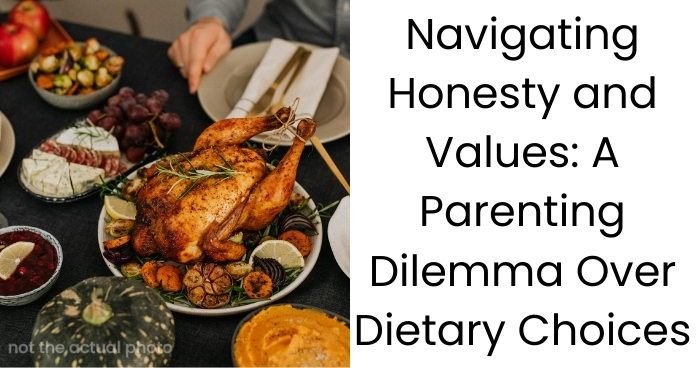Mom sneakily eats meat in front her son; ‘Is it wrong to trick him like this?’ AITA?
You are a 40-year-old mom dealing with family values, eating, and truth-telling. Your spouse is vegetarian and the skill of maintaining vegetarian meals at home has gained advantage so out of respect for him/her you have adopted vegetarian meal at home. You and your partner agreed to raise your 4-year-old son vegetarian, a decision you backed, even though you are not a vegetarian. But it got tough when your son, all of a sudden so precocious about morals and food, saw discrepancies between your stickery behavior and your own. He said that when you first met you told him you were vegetarian but you went on to eat meat secretly and even tried to hide it when eating out by saying your meat meals were vegetarian. This had reached a fever pitch recently during an incident where your son overheard a waitress say your order for a ham sandwich, resulting in him calling you out and your husband exploding his rage not at your diet but your lie and your sneaking around.
Read for more info Reddit



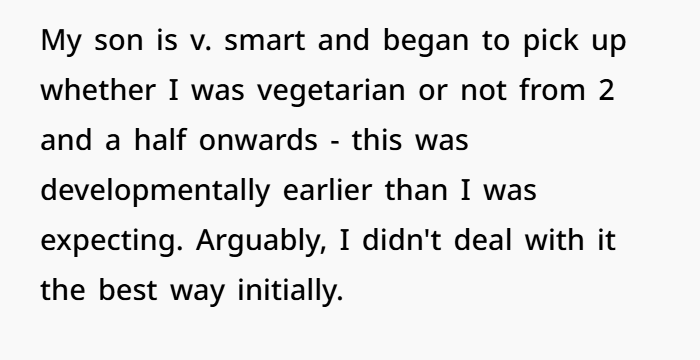

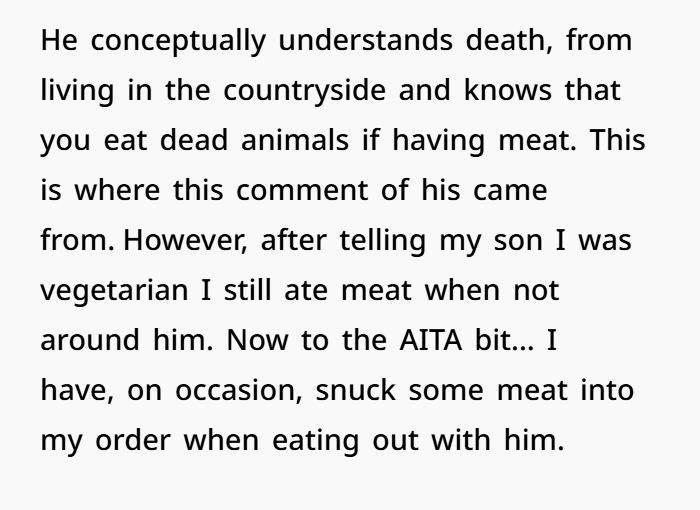
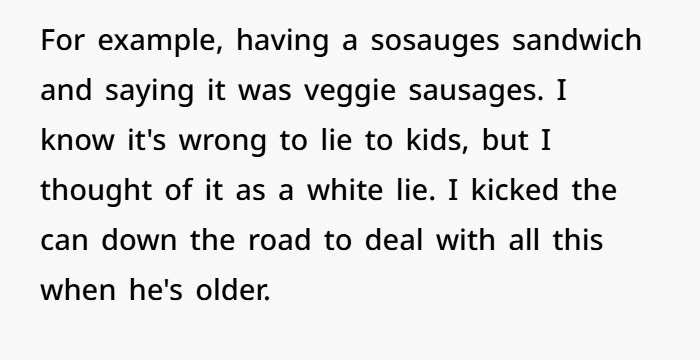

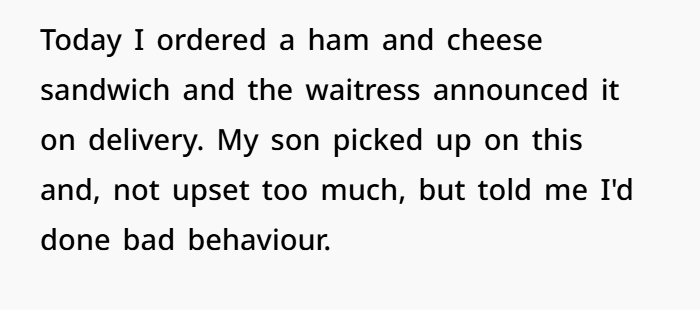


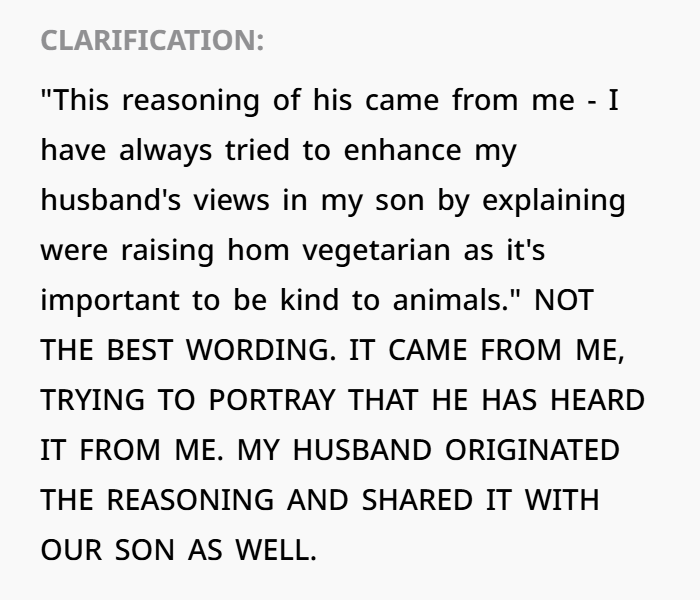
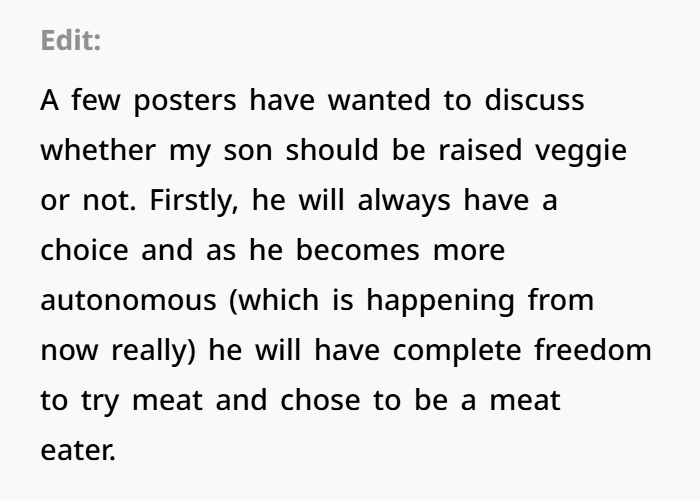
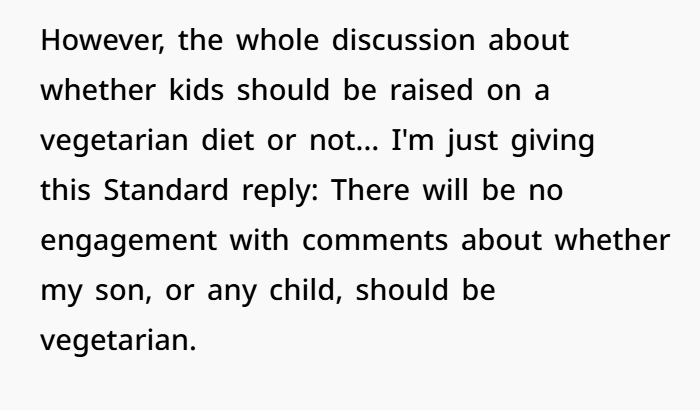
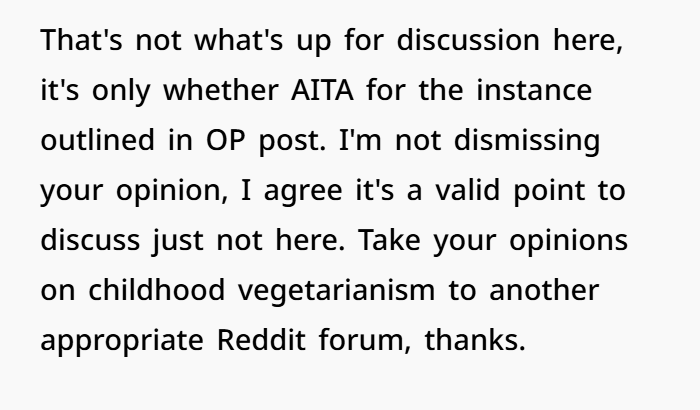
There is so much to unpack here, both ethically and psychologically: parenting and honesty; values negotiation; the challenges of raising kids in a belief system. Let’s break these down:
Honesty in Parenting
Generally, parenting experts advise honesty with your children — even on complicated or morally ambiguous subjects — because then trust erodes between parent and child if parents lie. In your case, you chose not to tell the truth about what you eat to your son, because you probably wanted to avoid conflict or confusion. Kids, even at an early age are keen observers of hypocrisy and your son reaction is a classic example of moral reasoning. After all, research suggests that even three-year-olds understand fairness and hypocrisy, so an upfront approach might have proven more constructive. Being honest, in an age-appropriate way, could go a long way in building trust and understanding.
Challenge 2 — Navigating Personal values in a Family Setting
This situation demonstrates how everyone sometimes struggles to balance their own independence with family mores. You may have religious beliefs and he may have his own and by agreeing to raise your son vegetarian, it shows respect for those beliefs, but it also means stamping out part of you as a meat eater. That dynamic also can lead to inner turmoil — particularly as your son starts to develop his own moral compass. According to researchers, children learn most about morality in the family and with parental modeling in which beliefs and actions are congruent. 27283A sentence Having acknowledgement of the fact that you have your own preferences with food, would have diffused some of the current tension, if it had not been followed up with the excessive output of boulders disguised as words.
Parenting by way of “White Lie”
You regarded your actions as a “white lie” to buy time until a more difficult conversation could be had, a strategy that usually backfires. Telling white lies can confuse children and cause them to not only question that particular instance but also their parents as a source of truth. Also, your kid calling your behavior “bad” shows he is beginning to develop moral awareness. At the same time, it also opens up the possibility for deeper conversations about conflicting values in the family—conversations that have the potential to hone his critical thinking skills and respect for other viewpoints.
Case Studies and Precedents
Your predicament is similar to several parenting struggles where parental behaviors do not align with professed family values. One of the most famous case studies in ethical parenting comes from the work of developmental psychologist Lawrence Kohlberg on his theory of moral development, which highlights the role of parental consistency in moral reasoning. Kohlberg contended that behavior is more effective than words in teaching children the inner moral values that lead to socially responsible behavior. It needs to match what you are telling your son.
Let’s see what readers had to say:
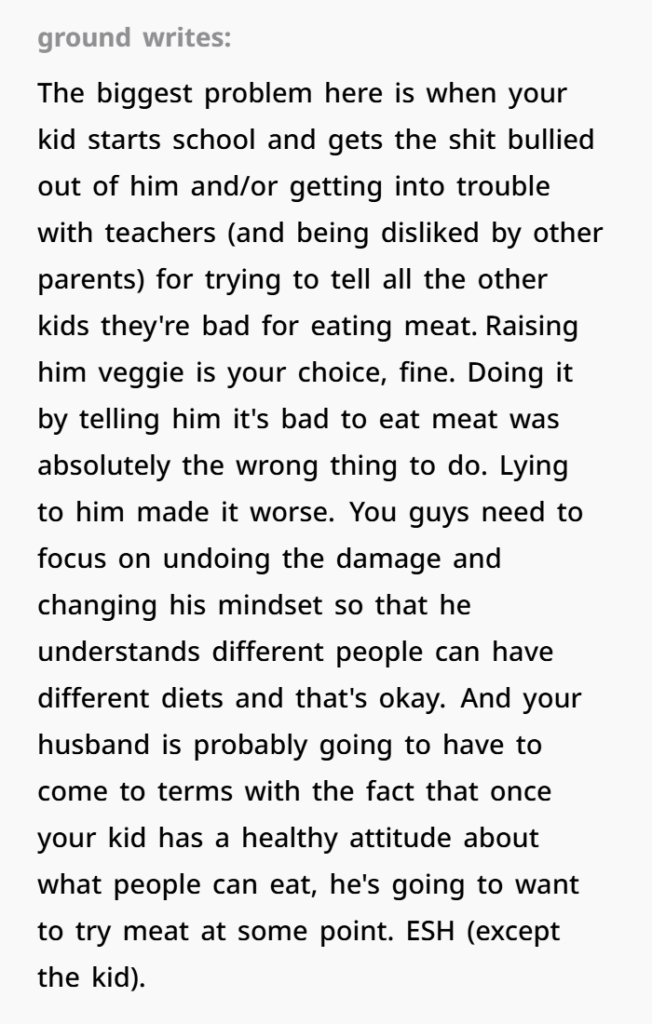
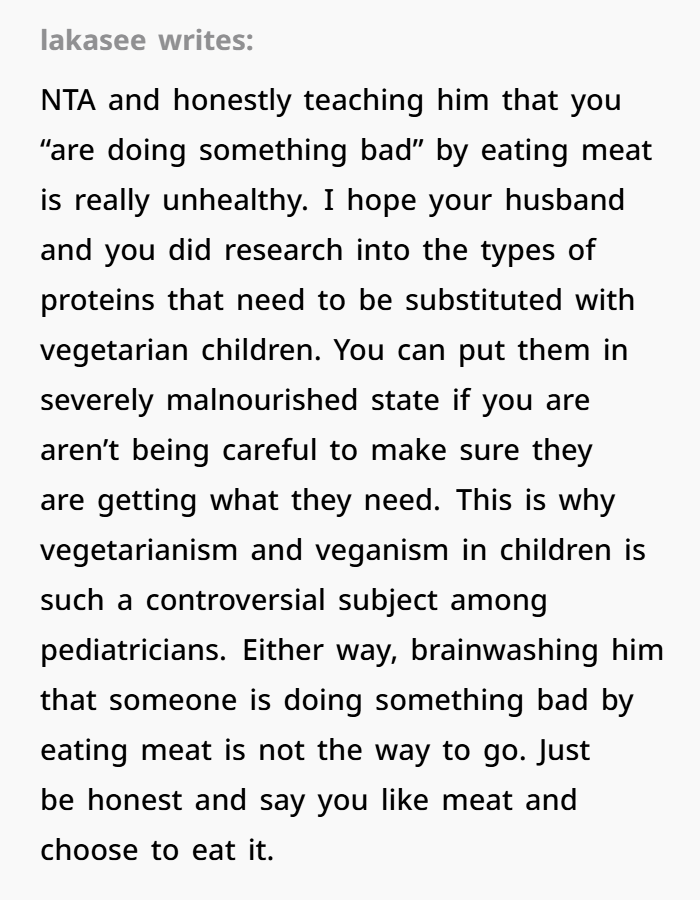
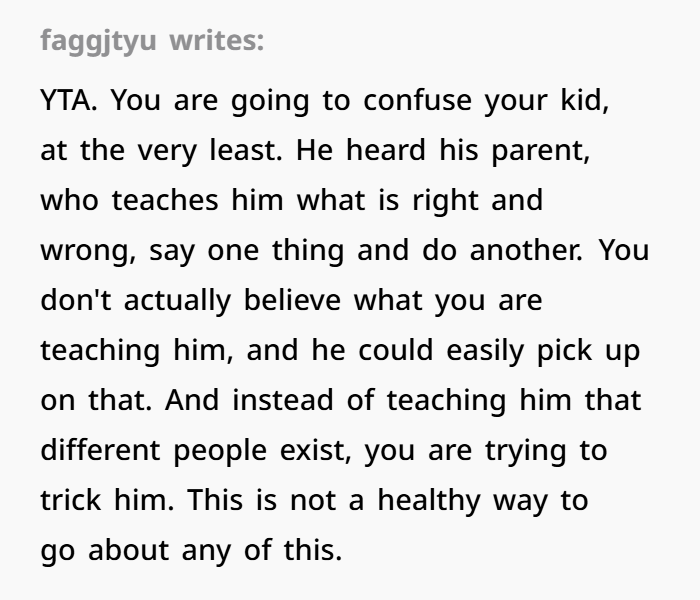
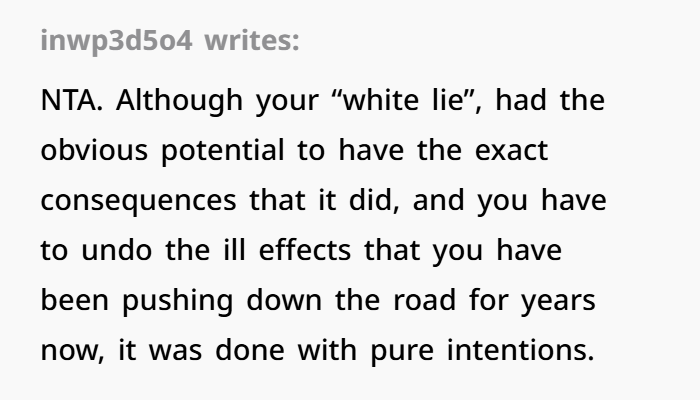
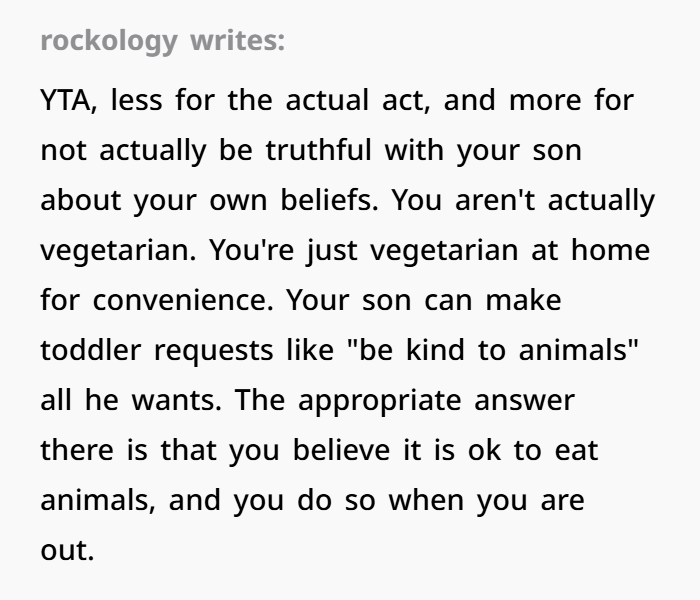
Although you have tried to be respectful of your husband’s beliefs and give your son a steady moral frame, lying has broken your trust. Trust can be rebuilt through open and honest communication—both between you and your son, and between you and your husband—moving forward, and creating a space where all of your family members are given the opportunity to practice and share beliefs freely will likely go a long way. Yes, you deserve credit for your efforts and what you have accomplished while others may choose to deny that at all costs, however, accountability must come right along side that credit. In this complex situation, it does seem like both of you have a part to play in the brand of conflict you have found yourselves in, with your husband not recognizing your sacrifices and you choosing to be somewhat vague as joint contributors to the current tension.

